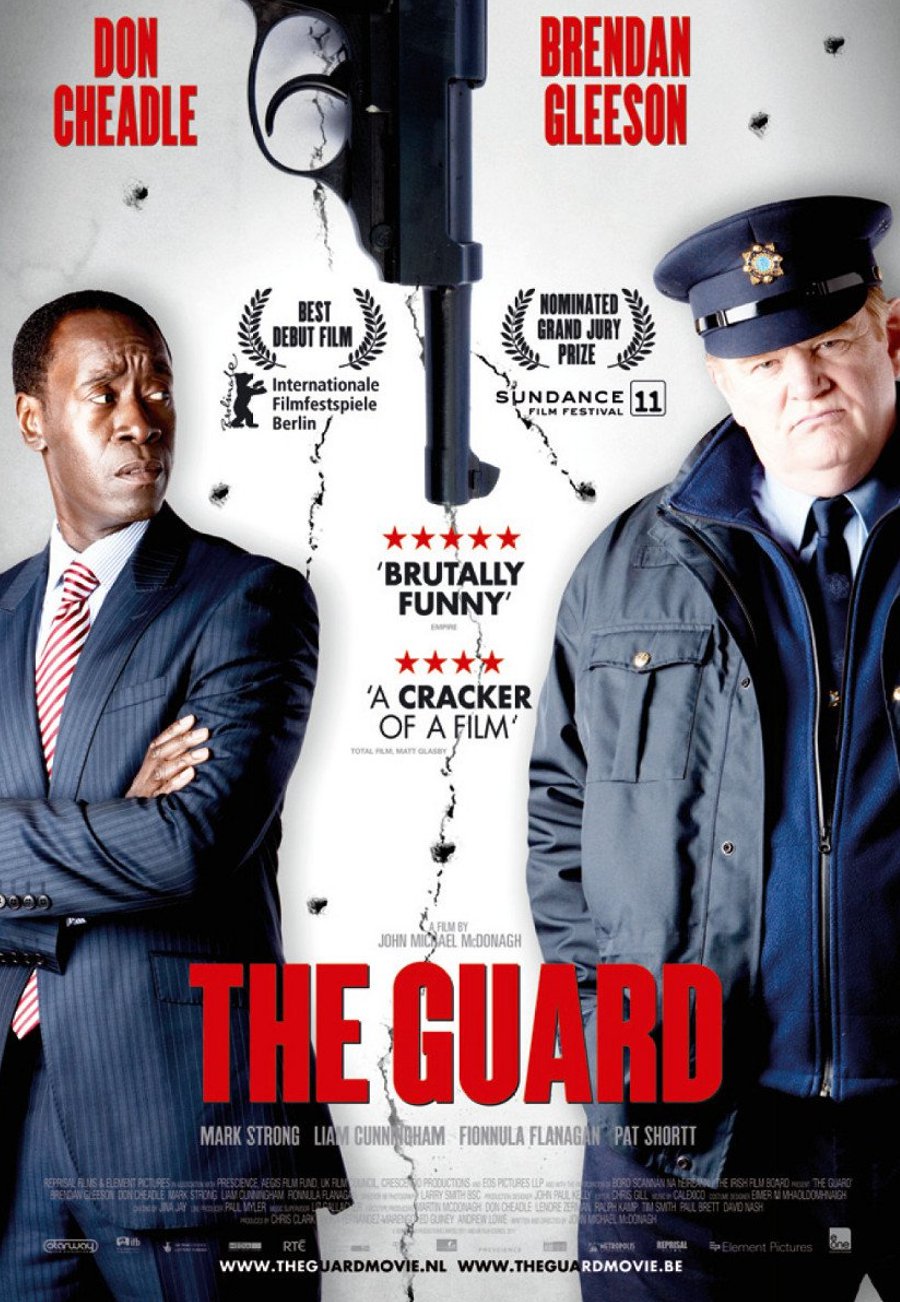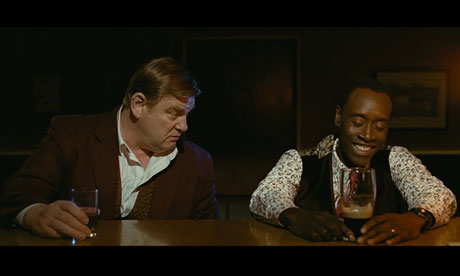

Director: McG, 2012 (PG-13)
This Means War is a romantic-comedy that tries to add action to catch the attention of the guy and ends up failing in all categories. It is not so romantic. The comedy is few and far between. And the action is basically to bookend the plot, what plot there is.
FDR (Chris Pine, Star Trek) and Tuck (Tom Hardy, Inception) are two CIA agents and best friends. The movie starts in Hong Kong with an action sequence that shows their ability to totally misunderstand the concept of covert. They are supposed to secretly stop a European spy from getting something (we never know quite what) and to do so without drawing attention to themselves. Well, that one goes away in a hurry. But we learn that FDR would take a bullet for Tuck, and vice versa. They are BFFs. But here is where this part of the plot is placed on hold for the next two acts.
 For their failure, they are grounded. Trained field agents now sit in the office, bantering with each other.
Tuck is a divorced dad, a safe and secure guy who’d surely make a great husband. FDR is a ladies man, smooth and charming, but who’s likely to be having a secret affair with an airline hostess every Tuesday. Oh yeah, she does show up for their appointment.
For their failure, they are grounded. Trained field agents now sit in the office, bantering with each other.
Tuck is a divorced dad, a safe and secure guy who’d surely make a great husband. FDR is a ladies man, smooth and charming, but who’s likely to be having a secret affair with an airline hostess every Tuesday. Oh yeah, she does show up for their appointment.Meanwhile Lauren (Reese Witherspoon, Rendition) is a single woman whose been let down by an earlier boyfriend’s infidelities. She wants to date but is afraid of getting hurt. So her best friend places signs her up at an on-line dating agency. There she sees Tuck’s profile and they have a sweet first date. But when she leaves him, she runs into FDR, who badgers his way into a date with her, too. When they find out they are both dating the same woman, the competition is on. They set ground rules, but decide to let Lauren choose the best man. They agree to leave their occupation outside of their dating, but the pressure is too much. Before they know it, each is bugging her apartment and using satellite technology to track each other’s dates breaking multiple privacy laws in the process. At that point, it means war!
 The movie essentially tries to combine two plots into one. The back-plot of the European spy coming after them gives pretext for two major action sequences and the finale. But the main story is the romance war between them. And these stories do play well together. The plot is lazy, the dialogue trite, and the main actors seem bored; accomplished as they are, they seem to be going through the motions here.
The movie essentially tries to combine two plots into one. The back-plot of the European spy coming after them gives pretext for two major action sequences and the finale. But the main story is the romance war between them. And these stories do play well together. The plot is lazy, the dialogue trite, and the main actors seem bored; accomplished as they are, they seem to be going through the motions here.There are some comic moments, but most of the jokes are sexual in nature. It’s hard to root for any of these. Who do we want Lauren to choose? We don’t care because she is not that likeable. Anyone who decides a sex-off will provide the winner is a person set up for relational failure. The ending, when it arrives is simply too neat and tidy. She makes her choice, but we can see what will happen because the plot demands no loose ends.
The only piece of good advice offered in the film comes from Lauren’s oversexed married friend Trish (Chelsea Handler), who tells her to choose the man who bring out the best in her. This is surprisingly strong wisdom from an otherwise superficial and weak film.
 When it comes to looking for a spouse, it is not the external looks that count, although they play an important part in the chemistry of attraction. It is the character and care that the other person brings to the relationship. A spouse completes a person. The right one will bring out the best in us, because he or she will want to see us grow to our maximum potential. Such a spouse will bring a selfless love to the marriage, just as Christ did to the church (Eph. 5:22-33). But the wrong one will eventually show a selfish nature that will focus on what can be taken from the marriage rather than what can be given. Such a spouse will limit rather than allow. Growth is stunted, relationship dries up, and divorce happens.
When it comes to looking for a spouse, it is not the external looks that count, although they play an important part in the chemistry of attraction. It is the character and care that the other person brings to the relationship. A spouse completes a person. The right one will bring out the best in us, because he or she will want to see us grow to our maximum potential. Such a spouse will bring a selfless love to the marriage, just as Christ did to the church (Eph. 5:22-33). But the wrong one will eventually show a selfish nature that will focus on what can be taken from the marriage rather than what can be given. Such a spouse will limit rather than allow. Growth is stunted, relationship dries up, and divorce happens.Would either of these men be the right one for Lauren? Who really cares? Skip this one. Its title should have been, “This Means Bore”.
Copyright ©2012, Martin Baggs
















